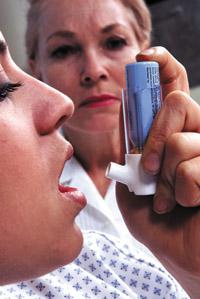Excess cleaning is not good
2001/05/08 Galarraga Aiestaran, Ana - Elhuyar Zientzia
Environmental pollution, eating habits and over-hygiene have increased allergic diseases in the last 20 years. Until recently the risk of infection for humans was much higher, as they were close to animals and nature. However, improved living and hygiene conditions have largely eliminated this threat. This, however, has also caused side effects and now the immune system often considers allergic to substances that previously did not cause harm.

Allergies are an excessive reaction caused by a failure of the immune system to substances not harmful to most. Allergens produce antibodies against these harmless substances and when they react with antigens an allergic reaction begins. Symptoms depend on where the reaction occurs, for example, if sneezing and mucus appear in the nose. In the airways, however, it produces bronchospasm and asthma symptoms appear: cough, suffocation, etc. Itching, eczema and hives appear on the skin; if it is in blood, life-threatening anaphylactic shock occurs.
These substances that cause the reaction, that is, allergens, are usually proteins or glycoproteins. The pathways of penetration can be by inhalation (pollen or powder), by ingestion (egg white proteins or shellfish), by simple contact (wool, scattering or heavy metals) or by injection (penicillin).
Cleaning products containing antibacterial substances, such as antibiotics and some soaps, at the international conference on new infectious diseases held in Atlanta last year, said they cause more and more infection problems.
The experts gathered pointed out that in normal conditions conventional disinfectants (soap and brush) are sufficient and that harder products should only be used in critical conditions.
Moreover, according to a study conducted in Italy, the contact of the child with bacteria is essential for the development of the immune system of children, since it is the only way to create antibodies to fight diseases in the future.

Gai honi buruzko eduki gehiago
Elhuyarrek garatutako teknologia






